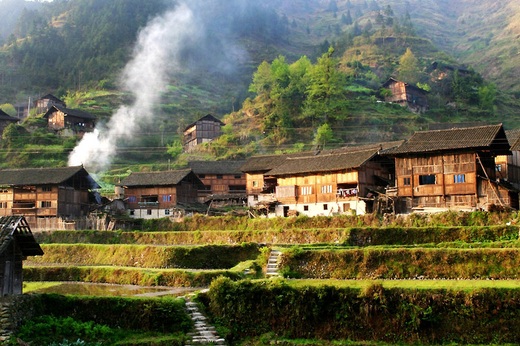SUBHEAD: It won't save the economy; It may make the crisis worse.
By Dr. Michael Hudson on 30 January 2009 in ISLET
http://www.michael-hudson.com/

Is this administration’s bank policy Bush-3 – or Clinton-5 or Reagan-8?
After (1) threatening for eight years that the prospect of a trillion-dollar deficit spread over a generation or so is sufficient reason to stiff Social Security recipients and abolish debts to the nation’s retirees, and (2) after the Bush administration provided $8 trillion over the past three months in cash-for-trash swaps of good Treasury bonds for Wall Street junk derivatives, the Obama Administration is now speaking of (3) some $2 to $4 trillion more to be given in just the next week or so.
Not a single Republican Congressman went along, just as Rep. Boehmer refused to support the Bush bailout on that fatal Friday when Mr. McCain and Mr. Obama debated each other over marginal issues not touching on the giveaway, which both candidates passionately supported. The Party of Wealth sees the political handwriting on the wall, for which the Party of Labor seems happy to take all responsibility. And indeed, only the Party of Labor could get away with such a giveaway. At least one hopes that they would have screamed like hell if they were a minority party and the Republicans tried to push through a plan like this.
I suppose that the moral is that being in a minority provides an opportunity to grandstand for god policy. If I thought the Republicans were serious rather than merely engaging in rhetorical posturing, I would like to see more “bipartisanship” here. But it all seems to be mere play-acting. The key will be to watch the campaign contributions flow for an index of how well this will pay off for the Democrats and how seriously Wall Street believes the Republican opposition to be!
The upshot is that traditional rhetorical language has been turned inside-out. After spending a lifetime denouncing socialism as inherently unfair, Wall Street is now doing a hideous parody – as if “socialism for the rich” were not an oxymoron in the first place. And the banks certainly are not being “nationalized.” Giving away the largest sum of spendable securities in history without direct managerial power that goes with real ownership is not “nationalization.” Ask Lenin.
As for “socializing the losses,” this is a euphemism for rewarding Wall Street for financially predatory and hence anti-social behavior. Another oxymoron.
The aim is to give away of between $2 and $4 trillion more for an “aggregator bank,” a “bad bank” to buy Wall Street’s junk mortgages and default swaps and thus to rescue banks from negative equity – leaving the government’s “bad bank” with the losses. Presumably, the bad loans will be made way above current market prices (zero, for loans that won’t be paid).
How on earth does one “compromise” between “mark to market” (what the market pays for loans and swaps without any value) and the trillions and trillions of dollars that banks have pumped into these bad loans? One would think that an either/or condition such as this wouldn’t lend itself to “compromise.” So it looks like Rep. Dennis Kucinich’s oversight committee is going to have a field day interrogating Treasury officials in years to come over how America created a brand new financial oligarchy. (How many readers of this can say “primitive accumulation”?)
Now that the details of the new, larger but definitely not improved bank have been leaked out in time for Wall Street’s Davos attendees to celebrate, we may ask whether, financially speaking, the Obama Administration should best be thought of as Bush-3 – or indeed, whether it is still on a pro-creditor trend that may better be traced as Clinton-5, or perhaps even Reagan-8. Since 1980 the financial sector has made a sustained money grab at the expense of labor and “taxpayers.” More accurately, it has been a debt grab, on the opposite side of the balance sheet from assets.
Backed by Mr. Summers, Boris Yeltsin’s Harvard Boys transferred trillions of dollars of Russian mineral wealth and public enterprises into the hands of kleptocrats. That was an asset transfer, pure and simple. In 1997, to be sure, the IMF gave Russia a loan that immediately disappeared into the kleptocrats’ bank accounts, to be paid out of subsequent oil-export proceeds. But assets were the name of the game.
Today’s U.S. giveaway has a new twist. It is analogous to the “watered stocks” and bonds that railroad magnates and Wall Street emperors of finance gave themselves and their political mouthpieces, simply adding the interest coupons and dividends onto the prices charged the public as if they were real “costs.” Today’s version – “watered Treasury bonds” – are being created on the public sector’s balance sheet.
“Taxpayers” must pay bear the interest charges on $2 to $4 trillion of new Treasury bonds printed and swapped for “trash,” that is, bad loans. Paying interest on these new bonds will leave less for the infrastructure investment that Mr. Obama rightly says we need.
The Bush-Obama bailout’s “small print” already has given Wall Street a decade’s tax-free status by letting it count its financial losses against its tax liability. So not only has there been a great fiscal debt giveaway, there has been a tax shift off finance. The fiscal squeeze has forced states and localities to announce plans to sell off roads and airports, land and other public assets to the financial sector in order to cover their looming budget deficits (which localities are not allowed to run under present legislation).
No federal funding has been granted to finance the cities as their tax receipts plunge. There has been a token amount to relieve some low-income families saddled with junk mortgages. But this does not involve actually giving them spendable money. Their role is to be trotted out like widows and orphans used to be, as justification to bail out banks for their bad gambles on currency, interest rates and bond derivative gambles. To Wall Street, insolvent debtors in the “real” economy are merely passive vehicles to get a book-credit of mortgage relief that the government will turn over in their name to their bankers to make these institutions whole.
Whole, and then some! In New York, Mr. Cuomo just reported (January 29) that $18.4 billion in Wall Street bonuses, paid for out of the government giveaway. And that’s just for New York State.
This is called “saving the economy.” That is as much an oxymoron as “socializing the losses.” Socializing the losses would mean wiping the mortgages and other bank loans of debtors off the books. These giveaways are to keep the debts on the books – with the government buying them to make the creditors whole.
The problem is that a quarter of U.S. real estate has fallen into Negative Equity. Its debts are not being bailed out, but are to be kept on the books. The economy’s “toxic waste” therefore remains. But a matching volume of new waste is being created and given to a few hundred families. No wonder the stock market soared by 200 points on Wednesday, led by bank stocks!
In the seemingly frenetic ten days since Mr. Obama took office, it is beginning to look as if his good political decisions – regarding Guantanamo, Iraq, employee rights to sue for employer wrongdoing – are sugar coating for the giveaway to Wall Street, a quid pro quo to avert opposition from his Democratic Party constituency. To accuse Mr. Obama of a crass giveaway would seem at first glance to contradict the basically decent thrust of his actions so far – or would, if one did not take into account his appointments of Larry Summers at the White House and the conspicuous leadership role in the bailout played by Barney Frank in the House and Chuck Schumer in the Senate. The administration’s solution has been placed in its hands by financial lobbyists – using in part the money that the Treasury has given to Wall Street.
The “solution” is to bail out the banks while leaving the “real” economy even more highly indebted. All this talk about more credit being needed, all this begging of banks to lend more and then extract yet more interest from the economy, leads it even deeper into the debt hole. The Obama administration hopes that the banks will lend it out to Americans. But this would mean that borrowers are to take on yet more debt – enough to start re-inflating house prices and making homes yet more unaffordable, requiring buyers to take on yet larger mortgages.
Larger mortgages at rising prices are supposed to help the banks rebuild their balance sheets – to earn enough to compensate for their gambling losses. The problem is that new loans do not help families pay their debts. It loads them down with yet more debt obligations. And homeowners whose mortgages already exceed the market price of their property are not going to be able to borrow more in any case.
Presumably the government will absorb their negative equity – after their own credit ratings are wrecked for life, but not those of the bankers who have made the bad loans. So we are seeing one of the most unfair double standards in history. It will make the economy worse off, because today’s looming depression is caused by debt deflation. Families, businesses and government having to spend more wage income, profits and tax revenues on debt service instead of buying goods and services. So why is the solution to this debt overhead held to be yet more debt? Is there not something crazy here?
How many families would like a “give-back” on every bad investment they’ve ever made? It’s like a parent coming to a child who has just broken a toy, saying “That’s all right. We’ll just go out and buy you a new one.” This from the apostles of “responsibility” for poverty, for mortgage debtors owing more than they can afford to pay, for people who get sick and can’t afford medical care, and for states and cities now left high and dry by the fiscal wipe-out that the Bush-Obama “cleanup” has foisted onto the economy.
No do-over for anyone but the hundreds of billionaires who have just been endowed with enough free money to become America’s ruling elite for the rest of the 21st century. (The Internal Revenue Service just announced that the wealthiest 400 families earned over $150 million each last year, on which they paid an average 17% tax rate.)
There is a simple way to think about what has happened – and why it won’t help the economy, but will hurt it. Suppose the new $4 trillion “bad bank” works. The government shell will give away Treasury bonds for bad bank loans and derivatives gambles, without the government “marking to market” on the prices it pays. So much for the pretense that giving Wall Street credit is “free market” policy.
The alternative to “free markets” (that is, markets free for predatory lending and a predatory tax shift off finance and property) does not turn out to be “socialism” at all, even “socialism for the rich.” It is naked kleptocracy, an oligarchic “primitive accumulation” akin to William the Conqueror’s seizure of the English Commons except that it is done by insider dealing rather than by overt military force as for instance had to be applied in Chile for Gen. Pinochet’s “labor capitalism” giveaway to the Chicago Boys.
The tragedy of all this is that it would take only $1 trillion or so to solve the bad-loan problem fro the homeowner’s side of the balance sheet. Or, the government could simply to let “the market” work its magic and wipe out the bad loans – and the bad debts that are their counterpart. This could best be done in the context of renewed debtor-oriented bankruptcy laws. But that obviously is not what the government aims to solve. It simply wants to make creditors whole – creditors who are, after all, the largest political campaign contributors and lobbyists these days.
When families owe debts they cannot pay, they are now liable for life. When banks make bad loans, bad bets on derivative insurance or owe money to winners to these trades beyond their ability to pay, they merely do what A.I.G., Citibank and Countrywide/Bank of America have done – turn their losses over to the government’s “bad bank.”
There can be no thought that banks are being “nationalized” (much less “socialized”) as long as the pro-creditor bankruptcy law for which the credit-card banks lobbied so hard is kept on the books. That should be the litmus test for all this.
The present economic crisis is that it was not necessary technologically, politically or fiscally. Governments at the state, local and federal levels are strapped for funds – but only because the natural source of taxation, land rent and monopoly rent and the user fees from public enterprise have been financialized. Back in 1930, property taxes financed three-quarters of state and local budgets. Today they supply only about a sixth. This shrinkage has not been passed on to homeowners and renters or commercial users.
Prices for homes and office buildings are set by the marketplace. The property price inflation has been fueled by junk-mortgage credit, with the rising rental value pledged to bankers as mortgage interest. The financial sector thus has replaced government as recipient of the economic surplus – leaving the public sector starved of cash. Populist “anti-tax” campaigns thus end up serving the mortgage bankers. The home owners serve only as passive vehicles by which the financial sector ends up with money previously destined for the public tax collector.
The financial sector also has replaced the government as economic planner. The legal monopoly of credit creation turns out to have given Wall Street the key to resource allocation.
It didn’t have to be this way. Bank credit is created freely. Governments could create it as simply on the computer keyboard as banks do it. The U.S. Treasury did thus during America’s Civil War when it issued greenback credit. That experience inspired half a century of bank efforts at public relations to accuse governments of being reckless. Only private banks, it was claimed, could issue prudent and responsible credit.
Now that that myth has been broken for good, isn’t it time to think about the alternative financial and fiscal policy that this myth was crafted to exclude from polite discussion? We don’t need a “bad bank.” We already have many on Wall Street – and they should be transformed with a new set of lending and investment rules, not restored in a way that will let them earn yet more tax-free gains by loading the economy down with yet more debt.
We don’t need the junk economics that led the banking system to create junk mortgages and the junk mathematics that Wall Street used to create junk “credit default swaps” and other derivatives that have now gone bad. These ARE bad – and shouldn’t be shifted onto the “good” government balance sheet.
.
By Dr. Michael Hudson on 30 January 2009 in ISLET
http://www.michael-hudson.com/

Is this administration’s bank policy Bush-3 – or Clinton-5 or Reagan-8?
After (1) threatening for eight years that the prospect of a trillion-dollar deficit spread over a generation or so is sufficient reason to stiff Social Security recipients and abolish debts to the nation’s retirees, and (2) after the Bush administration provided $8 trillion over the past three months in cash-for-trash swaps of good Treasury bonds for Wall Street junk derivatives, the Obama Administration is now speaking of (3) some $2 to $4 trillion more to be given in just the next week or so.
Not a single Republican Congressman went along, just as Rep. Boehmer refused to support the Bush bailout on that fatal Friday when Mr. McCain and Mr. Obama debated each other over marginal issues not touching on the giveaway, which both candidates passionately supported. The Party of Wealth sees the political handwriting on the wall, for which the Party of Labor seems happy to take all responsibility. And indeed, only the Party of Labor could get away with such a giveaway. At least one hopes that they would have screamed like hell if they were a minority party and the Republicans tried to push through a plan like this.
I suppose that the moral is that being in a minority provides an opportunity to grandstand for god policy. If I thought the Republicans were serious rather than merely engaging in rhetorical posturing, I would like to see more “bipartisanship” here. But it all seems to be mere play-acting. The key will be to watch the campaign contributions flow for an index of how well this will pay off for the Democrats and how seriously Wall Street believes the Republican opposition to be!
The upshot is that traditional rhetorical language has been turned inside-out. After spending a lifetime denouncing socialism as inherently unfair, Wall Street is now doing a hideous parody – as if “socialism for the rich” were not an oxymoron in the first place. And the banks certainly are not being “nationalized.” Giving away the largest sum of spendable securities in history without direct managerial power that goes with real ownership is not “nationalization.” Ask Lenin.
As for “socializing the losses,” this is a euphemism for rewarding Wall Street for financially predatory and hence anti-social behavior. Another oxymoron.
The aim is to give away of between $2 and $4 trillion more for an “aggregator bank,” a “bad bank” to buy Wall Street’s junk mortgages and default swaps and thus to rescue banks from negative equity – leaving the government’s “bad bank” with the losses. Presumably, the bad loans will be made way above current market prices (zero, for loans that won’t be paid).
How on earth does one “compromise” between “mark to market” (what the market pays for loans and swaps without any value) and the trillions and trillions of dollars that banks have pumped into these bad loans? One would think that an either/or condition such as this wouldn’t lend itself to “compromise.” So it looks like Rep. Dennis Kucinich’s oversight committee is going to have a field day interrogating Treasury officials in years to come over how America created a brand new financial oligarchy. (How many readers of this can say “primitive accumulation”?)
Now that the details of the new, larger but definitely not improved bank have been leaked out in time for Wall Street’s Davos attendees to celebrate, we may ask whether, financially speaking, the Obama Administration should best be thought of as Bush-3 – or indeed, whether it is still on a pro-creditor trend that may better be traced as Clinton-5, or perhaps even Reagan-8. Since 1980 the financial sector has made a sustained money grab at the expense of labor and “taxpayers.” More accurately, it has been a debt grab, on the opposite side of the balance sheet from assets.
Backed by Mr. Summers, Boris Yeltsin’s Harvard Boys transferred trillions of dollars of Russian mineral wealth and public enterprises into the hands of kleptocrats. That was an asset transfer, pure and simple. In 1997, to be sure, the IMF gave Russia a loan that immediately disappeared into the kleptocrats’ bank accounts, to be paid out of subsequent oil-export proceeds. But assets were the name of the game.
Today’s U.S. giveaway has a new twist. It is analogous to the “watered stocks” and bonds that railroad magnates and Wall Street emperors of finance gave themselves and their political mouthpieces, simply adding the interest coupons and dividends onto the prices charged the public as if they were real “costs.” Today’s version – “watered Treasury bonds” – are being created on the public sector’s balance sheet.
“Taxpayers” must pay bear the interest charges on $2 to $4 trillion of new Treasury bonds printed and swapped for “trash,” that is, bad loans. Paying interest on these new bonds will leave less for the infrastructure investment that Mr. Obama rightly says we need.
The Bush-Obama bailout’s “small print” already has given Wall Street a decade’s tax-free status by letting it count its financial losses against its tax liability. So not only has there been a great fiscal debt giveaway, there has been a tax shift off finance. The fiscal squeeze has forced states and localities to announce plans to sell off roads and airports, land and other public assets to the financial sector in order to cover their looming budget deficits (which localities are not allowed to run under present legislation).
No federal funding has been granted to finance the cities as their tax receipts plunge. There has been a token amount to relieve some low-income families saddled with junk mortgages. But this does not involve actually giving them spendable money. Their role is to be trotted out like widows and orphans used to be, as justification to bail out banks for their bad gambles on currency, interest rates and bond derivative gambles. To Wall Street, insolvent debtors in the “real” economy are merely passive vehicles to get a book-credit of mortgage relief that the government will turn over in their name to their bankers to make these institutions whole.
Whole, and then some! In New York, Mr. Cuomo just reported (January 29) that $18.4 billion in Wall Street bonuses, paid for out of the government giveaway. And that’s just for New York State.
This is called “saving the economy.” That is as much an oxymoron as “socializing the losses.” Socializing the losses would mean wiping the mortgages and other bank loans of debtors off the books. These giveaways are to keep the debts on the books – with the government buying them to make the creditors whole.
The problem is that a quarter of U.S. real estate has fallen into Negative Equity. Its debts are not being bailed out, but are to be kept on the books. The economy’s “toxic waste” therefore remains. But a matching volume of new waste is being created and given to a few hundred families. No wonder the stock market soared by 200 points on Wednesday, led by bank stocks!
In the seemingly frenetic ten days since Mr. Obama took office, it is beginning to look as if his good political decisions – regarding Guantanamo, Iraq, employee rights to sue for employer wrongdoing – are sugar coating for the giveaway to Wall Street, a quid pro quo to avert opposition from his Democratic Party constituency. To accuse Mr. Obama of a crass giveaway would seem at first glance to contradict the basically decent thrust of his actions so far – or would, if one did not take into account his appointments of Larry Summers at the White House and the conspicuous leadership role in the bailout played by Barney Frank in the House and Chuck Schumer in the Senate. The administration’s solution has been placed in its hands by financial lobbyists – using in part the money that the Treasury has given to Wall Street.
The “solution” is to bail out the banks while leaving the “real” economy even more highly indebted. All this talk about more credit being needed, all this begging of banks to lend more and then extract yet more interest from the economy, leads it even deeper into the debt hole. The Obama administration hopes that the banks will lend it out to Americans. But this would mean that borrowers are to take on yet more debt – enough to start re-inflating house prices and making homes yet more unaffordable, requiring buyers to take on yet larger mortgages.
Larger mortgages at rising prices are supposed to help the banks rebuild their balance sheets – to earn enough to compensate for their gambling losses. The problem is that new loans do not help families pay their debts. It loads them down with yet more debt obligations. And homeowners whose mortgages already exceed the market price of their property are not going to be able to borrow more in any case.
Presumably the government will absorb their negative equity – after their own credit ratings are wrecked for life, but not those of the bankers who have made the bad loans. So we are seeing one of the most unfair double standards in history. It will make the economy worse off, because today’s looming depression is caused by debt deflation. Families, businesses and government having to spend more wage income, profits and tax revenues on debt service instead of buying goods and services. So why is the solution to this debt overhead held to be yet more debt? Is there not something crazy here?
How many families would like a “give-back” on every bad investment they’ve ever made? It’s like a parent coming to a child who has just broken a toy, saying “That’s all right. We’ll just go out and buy you a new one.” This from the apostles of “responsibility” for poverty, for mortgage debtors owing more than they can afford to pay, for people who get sick and can’t afford medical care, and for states and cities now left high and dry by the fiscal wipe-out that the Bush-Obama “cleanup” has foisted onto the economy.
No do-over for anyone but the hundreds of billionaires who have just been endowed with enough free money to become America’s ruling elite for the rest of the 21st century. (The Internal Revenue Service just announced that the wealthiest 400 families earned over $150 million each last year, on which they paid an average 17% tax rate.)
There is a simple way to think about what has happened – and why it won’t help the economy, but will hurt it. Suppose the new $4 trillion “bad bank” works. The government shell will give away Treasury bonds for bad bank loans and derivatives gambles, without the government “marking to market” on the prices it pays. So much for the pretense that giving Wall Street credit is “free market” policy.
The alternative to “free markets” (that is, markets free for predatory lending and a predatory tax shift off finance and property) does not turn out to be “socialism” at all, even “socialism for the rich.” It is naked kleptocracy, an oligarchic “primitive accumulation” akin to William the Conqueror’s seizure of the English Commons except that it is done by insider dealing rather than by overt military force as for instance had to be applied in Chile for Gen. Pinochet’s “labor capitalism” giveaway to the Chicago Boys.
The tragedy of all this is that it would take only $1 trillion or so to solve the bad-loan problem fro the homeowner’s side of the balance sheet. Or, the government could simply to let “the market” work its magic and wipe out the bad loans – and the bad debts that are their counterpart. This could best be done in the context of renewed debtor-oriented bankruptcy laws. But that obviously is not what the government aims to solve. It simply wants to make creditors whole – creditors who are, after all, the largest political campaign contributors and lobbyists these days.
When families owe debts they cannot pay, they are now liable for life. When banks make bad loans, bad bets on derivative insurance or owe money to winners to these trades beyond their ability to pay, they merely do what A.I.G., Citibank and Countrywide/Bank of America have done – turn their losses over to the government’s “bad bank.”
There can be no thought that banks are being “nationalized” (much less “socialized”) as long as the pro-creditor bankruptcy law for which the credit-card banks lobbied so hard is kept on the books. That should be the litmus test for all this.
The present economic crisis is that it was not necessary technologically, politically or fiscally. Governments at the state, local and federal levels are strapped for funds – but only because the natural source of taxation, land rent and monopoly rent and the user fees from public enterprise have been financialized. Back in 1930, property taxes financed three-quarters of state and local budgets. Today they supply only about a sixth. This shrinkage has not been passed on to homeowners and renters or commercial users.
Prices for homes and office buildings are set by the marketplace. The property price inflation has been fueled by junk-mortgage credit, with the rising rental value pledged to bankers as mortgage interest. The financial sector thus has replaced government as recipient of the economic surplus – leaving the public sector starved of cash. Populist “anti-tax” campaigns thus end up serving the mortgage bankers. The home owners serve only as passive vehicles by which the financial sector ends up with money previously destined for the public tax collector.
The financial sector also has replaced the government as economic planner. The legal monopoly of credit creation turns out to have given Wall Street the key to resource allocation.
It didn’t have to be this way. Bank credit is created freely. Governments could create it as simply on the computer keyboard as banks do it. The U.S. Treasury did thus during America’s Civil War when it issued greenback credit. That experience inspired half a century of bank efforts at public relations to accuse governments of being reckless. Only private banks, it was claimed, could issue prudent and responsible credit.
Now that that myth has been broken for good, isn’t it time to think about the alternative financial and fiscal policy that this myth was crafted to exclude from polite discussion? We don’t need a “bad bank.” We already have many on Wall Street – and they should be transformed with a new set of lending and investment rules, not restored in a way that will let them earn yet more tax-free gains by loading the economy down with yet more debt.
We don’t need the junk economics that led the banking system to create junk mortgages and the junk mathematics that Wall Street used to create junk “credit default swaps” and other derivatives that have now gone bad. These ARE bad – and shouldn’t be shifted onto the “good” government balance sheet.
.






